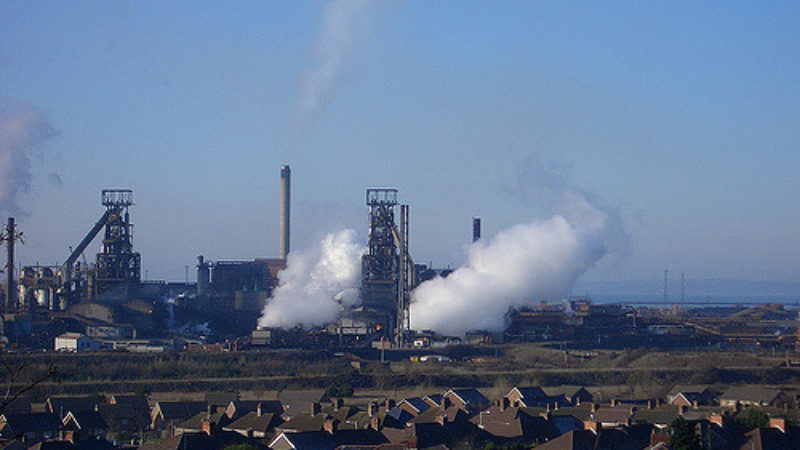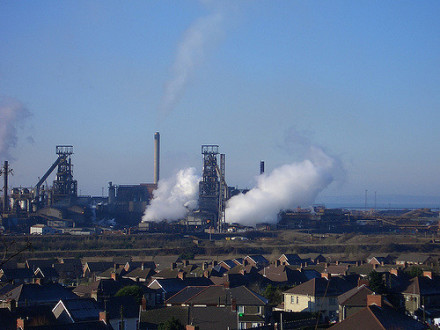

Some myths about the European Union, like banning holiday snaps or forcing cows to wear nappies, are easier to dispel because of the sheer absurdity; others, like the claims the EU is to blame for the steel crisis, risk doing serious damage, as they go to the heart of a major issue affecting tens of thousands of livelihoods.
Let’s get one thing straight – it isn’t ‘Brussels’ to blame for the dire situation in Port Talbot, or Redcar or Scunthorpe, it’s the Tory Government, who have been unwilling to intervene at home and have actively blocked action abroad. And they are continuing to do nothing while the industry suffers, with business secretary Sajid Javid yesterday refusing to drop his opposition to raising EU tariffs on cheap Chinese steel.
British ministers have for months been thwarting reform of the EU’s trade defence measures, reforms that would enable more to be done to stop the dumping of steel by China – selling it at below the price it can fetch at home, or exporting it at below the cost of production. The global steel market is saturated with overcapacity – in particular by China – driving down prices to unsustainable levels, yet instead of backing EU anti-dumping measures to enable our steel industry to compete on a level playing field, they are blocking action.
Indeed, far from countenancing action, David Cameron is China’s number one cheerleader in its quest to be granted full Market Economy Status, which in theory means theirs is an economy where supply, demand and prices of goods and services are determined by the market – which is patently not the case with steel.
As shadow business secretary Angela Eagle has said, granting market economy status to China in the absence of important safeguards would significantly diminish the capacity of the EU to guard against Chinese dumping, while China continues to saddle British exports of steel with exorbitant tariffs. These measures by China have the potential to destroy our steel industry – instead of doing Beijing’s bidding, the British government must stand up for British steelworkers, their families and communities, and defend jobs and the industry in the face of this unfair competition.
They government has already shown it’s unwillingness to use the tools at its disposal, when they failed to apply for EU funding to help steelworkers made redundant by the closure of the Redcar plant. The European Global Adjustment Fund has a budget of more than £100 million, and can fund up to 60 per cent of the cost of projects designed to help workers made redundant find another job or set up their own business, and help with careers advice, education, training and re-training.
Last year the Romanian steel sector received more than £2.5m to help 1,000 former steel workers who lost their jobs – this is money Britain is entitled to, money that will help workers get back on their feet, yet the government failed to apply for it.
The UK steel sector faces tough challenges through a combination of rising steel prices, a race to the bottom in terms conditions and pay, an influx of cheap Chinese steel and increasing energy costs. The steel industry is a vital part of the manufacturing sector in the UK and the EU – in the Britain alone, the steel industry is made up of more than 24,000 individual enterprises which directly employ 330,000 people and is worth in excess of £45.5 billion to our UK economy.
The government, and Mr Javid in particular, are wallowing in their non-interventionist ideology while the steel industry sinks, content to allow China to intervene heavily in the market, acting contrary to free market ideals, but preventing the EU from taking corrective action in defence of market principle. The irony is rich enough to choke on.
And all the while, the likes of Nigel Farage and Boris Johnson seek to blame the European Union for this crisis, as they do for all such crises, never letting inconvenient things like facts get in their way. It’s a bit rich for Eurosceptics to blame the EU for preventing the government from taking action, when it is the government that’s stopping the EU from saving our steel industry, and the jobs, livelihoods and communities that go with it.
Glenis Willmott MEP is leader of the European Parliamentary Labour Party




More from LabourList
‘AI regulation is key to Labour’s climate credibility’
Ben Cooper column: ‘Labour needs to rediscover its own authentic populism’
‘Westminster rethought: a new purpose built site and a museum of democracy’